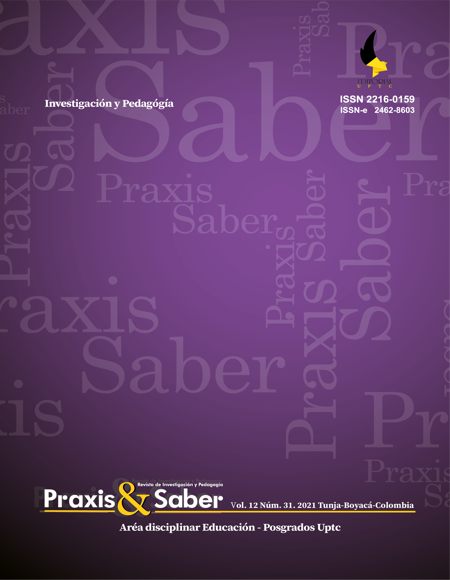Method for the assessment of computational thinking and code literacy

Abstract
This article reports a method for the assessment of computational thinking for adults. To this end, the entire andragogical construction of a course was developed, founded on Ausubel’s theories of meaningful learning and on Knowles’ theories of adult learning. The proposal consists of presenting a reference model of computational thinking, a method of assessment, and the classification of subjects. As a result of the application of this method, it is possible to classify participants into code literate and unplugged computational thinker. This method was implemented in a bi-national course, where Brazilian and Uruguayan students share the same space for learning. Through this case study and a qualitative analysis of the results, 25% of the participants achieved the status of code literate and 12.5%
of the participants achieved the status of unplugged computational thinker. An important contribution of this method is the combination of instruments for assessment and the resulting classification of individuals, as no similar publications have been found to date.
Keywords
adult learning, information literacy, informatics, method for assessment
References
- Ausubel, D. (2003). Aquisição e retenção de conhecimentos: Uma perspectiva cognitiva. Tradução de Lígia Teopisto (1a ed.). Plátano Edições Técnicas.
- Ausubel, D., Novak, J., & Hanesian, H. (1983). Psicología Educativa Un punto de vista cognoscitivo (2a ed.). Trillas.
- Brackmann, C. (2017). Desenvolvimento do pensamento computacional através de atividades desplugadas na Educação Básica [Tesis Doctoral, Universidade Federal do Rio Grande do Sul]. LUME Repositorio Digital. https://lume.ufrgs.br/handle/10183/172208
- Cordenonzi, W. (2020). O desenvolvimento do pensamento computacional e as evidências da alfabetização em código em adultos [Tesis Doctoral no publicada]. Universidade do Vale do Taquari - Univates.
- Conselho Nacional de Saúde. (2012, 12 de diciembre). Resolução Nº 466. https://conselho.saude.gov.br/resolucoes/2012/Reso466.pdf
- Cordenonzi, W., Del Pino, J., Oliveira, E., & Guimarães Strohschoen, A. (2020). Alfabetização – uma evolução do conceito: alfabetização e letramento em código. Texto Livre: Linguagem e Tecnologia, 13(1), 137. https://doi.org/10.17851/1983-3652.13.1.137-155 DOI: https://doi.org/10.17851/1983-3652.13.1.137-155
- Cordenonzi, W., Ortiz, A., Meneses, L., Gau de Mello, A., Botasso, J., Mariani, V., Gomez, R., & Cross, V. (2014). Mapeamento da Educação Binacional - Relatório Técnico I. http://ecompartindo.santana.ifsul.edu.br/pluginfile.php/2328/mod_resource/content/3/relatorio 1 - mapeamento da educação binacional.pdf
- Dagiené, V., & Futschek, G. (2008). Bebras International Contest on Informatics and Computer Literacy: Criteria for Good Tasks. En R. Mittermeir, & M. Sysło (Eds.). Informatics Education - Supporting Computational Thinking (pp. 19-30). Springer. DOI: https://doi.org/10.1007/978-3-540-69924-8_2
- Gil, A. C. (2002). Como elaborar projetos de Pesquisa (4a ed.). Atlas.
- Grover, S., Basu, S., Bienkowski, M., Eagle, M., Diana, N., Stamper, J., Grover, S., Basu, S., Bienkowski, M., Eagle,M, Diana, N., & Stam-Per, J. (2017). 4 A Framework for Using Hypothesis-Driven Approaches to Support Data-Driven Learning Analytics in
- Measuring Computational Thinking in Block-Based Programming Environments ACM Transactions on Computing Education, 17(3), 14. https://doi.org/10.1145/3105910 DOI: https://doi.org/10.1145/3105910
- Kalelioglu, F., Gülbahar, Y., & Kukul, V. (2016). A framework for computational thinking based on a systematic research review. Baltic Journal of Modern Computing, 4(3), 583. https://www.sciencedirect.com/science/article/abs/pii/S0360131519301605
- Knowles, M. (1981). The modern practice of adult education: From pedagogy to andragogy (2a ed.). Cambridge Book.
- Knowles, M., Holton, E., & Swamson, R. (2011). Aprendizagem de Resultados (2a ed.). Elsevier.
- Korkmaz, Ö., Çakir, R., & Özden, M. Y. (2017). A validity and reliability study of the computational thinking scales (CTS). Computers in Human Behavior, 72, 558–569. https://doi.org/10.1016/j.chb.2017.01.005 DOI: https://doi.org/10.1016/j.chb.2017.01.005
- Lee, I., Grover, S., Martin, F., Pillai, S., Malyn-Smith, J., & Org, J. (2020). Computational Thinking from a Disciplinary Perspective: Integrating Computational Thinking in K-12 Science, Technology, Engineering, and Mathematics Education. Journal of Science
- Education and Technology, 29, 1–8. https://doi.org/10.1007/s10956-019-09803-w DOI: https://doi.org/10.1007/s10956-019-09803-w
- Moreno, J., Román, M., & Robles, G. (2018). On computational thinking as a universal skill: A review of the latest research on this ability. En IEEE Global Engineering Education Conference (EDUCON) (pp.1684–1689). https://doi.org/10.1109/EDUCON.2018.8363437 DOI: https://doi.org/10.1109/EDUCON.2018.8363437
- Pring, B., Brown, R., Davis, E., Bahl, M., & Cook, M. (2017). 21 Jobs on the Future. A Guide to Getting – and Staying –Employed over the Next 10 Years. Center for the Future of Work. https://www.cognizant.com/whitepapers/21-jobs-of-the-future-a-guide-togetting-and-staying-employed-over-the-next-10-years-codex3049.pdf
- Raabe, A., Santana, A., Ellery, N., & Gonçalves, F. (2017). Um Instrumento para Diagnóstico do Pensamento Computacional. Congresso Brasileiro de Informática Na Educação (CBIE), VI , (pp. 1172–1181). https://doi.org/10.5753/cbie.wcbie.2017.1172 DOI: https://doi.org/10.5753/cbie.wcbie.2017.1172
- Rainie, L., & Anderson, J. (2017). Code-Dependent: Pros and Cons of the Algorithm Age. Pew Research Center. http://www.pewinternet.org/2017/02/08/code-dependent-pros-andcons-of-the-algorithm-age
- Román, M. (2016). Codigoalfabetización y Pensamiento Computacional en Educación Primaria y Secundaria: Validación de un Instrumento y Evaluación de Programas [Tesis Doctoral, Universidad Nacional de Educación a Distancia]. E-spacio. http://e-spacio.uned.es/fez/view/tesisuned:Educacion-Mroman
- Román, M., Pérez, J., & Jiménez, C. (2017). Which cognitive abilities underlie computational thinking? Criterion validity of the Computational Thinking Test. Computers in Human Behavior, 72, 678–691. https://doi.org/10.1016/j.chb.2016.08.047 DOI: https://doi.org/10.1016/j.chb.2016.08.047
- Santos, C. (2010). Andragogia: aprendendo a ensinar adultos. VII Simpósio de Excelência Em Gestão e Tecnologia. http://www.aedb.br/seget/arquivos/artigos10/402_ArtigoAndragogia.pdf
- Tikva, C., & Tambouris, E. (2021). A systematic mapping study on teaching and learning Computational Thinking through programming in higher education. Thinking Skills and Creativity, 41, 100849. https://doi.org/10.1016/j.tsc.2021.100849 DOI: https://doi.org/10.1016/j.tsc.2021.100849
- Triviños, A. (2015). Introdução à pesquisa em Ciências Sociais - A pesquisa qualitativa em Educação. Atlas.
- Wenger, E. (2002). Cultivating communities of practice: a quick start-up guide for communities of practice. Harvard Business Review Press.
- Wing, J. M. (2006). Computational thinking. Communications of the ACM, 49(3), 33–35.
- https://doi.org/10.1145/1118178.1118215 DOI: https://doi.org/10.1145/1118178.1118215
- Wing, J. M. (2017). Computational thinking’s influence on research and education for all. Italian Journal of Educational Technology, 25(2), 7–14. https://www.learntechlib.org/p/183466/
- Yadav, A., Burkhart, D., Moix, D., Snow, E., Bandaru, P., & Clayborn, L. (2015). Sowing the seeds of assessment literacy in secondary computer science education: A landscape study. Computer Science Teachers Association. http://csta.acm.org/Research/sub/Projects/AssessmentStudy2015.html
